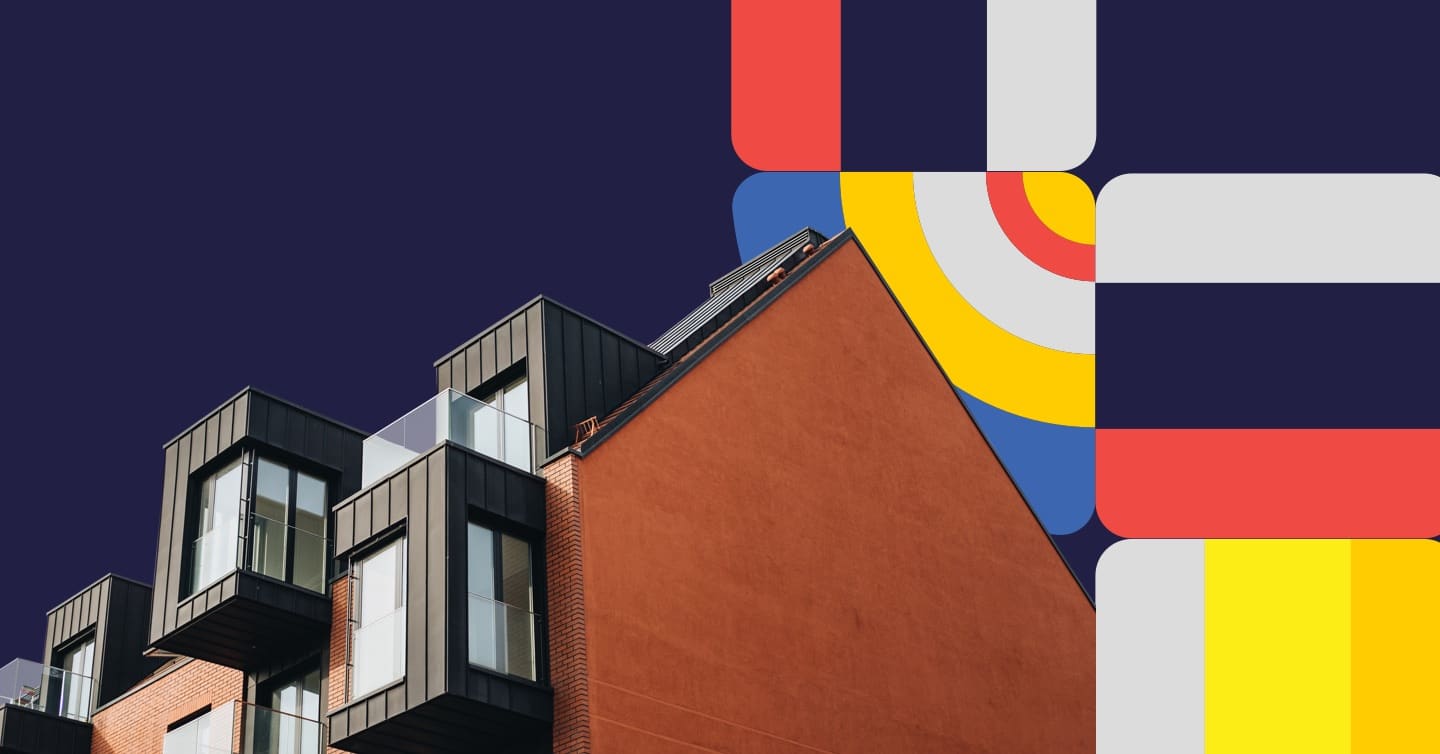Everything You Need to Know About Buying a Condo

Table of contents
The real estate market in Canada has driven the demand for condos in recent years, as they are often the more affordable option in areas with a higher cost of living. Whether you’re a first-time buyer or a retiree looking to downsize, condos offer convenience, affordability, and community living.
Owning a condo comes with many of the same financial responsibilities as owning a home, like paying property taxes, utilities, and insurance. However, unlike a house, condos have rules, monthly maintenance fees, and a unique ownership structure to consider when exploring options.
Key Takeaways
- Buying a condo involves owning your private unit while sharing ownership of all common areas.
- Condo fees vary and include contributions to the reserve fund, building utilities, services, and maintenance.
- Before buying, review the status certificate, including details about the reserve fund, building management, and rules or bylaws.
What Is a Condo?
A condo, short for condominium, also known as strata, is a type of property ownership where you own your private unit within a larger residential complex. As part of this ownership, you also share ownership of all common areas in the building, including lobbies, hallways, elevators, fitness centres, mechanical and electrical systems, structural elements and outdoor spaces.
Condos can be found in high-rise and low-rise buildings and townhouse-style communities. These buildings may also include street-level shops and restaurants, which could increase the homeowner’s insurance costs for owners, but their rent also adds to the building’s budget inflows.
Condos are different from other homeownership types due to the dual ownership structure. You fully own your unit, but co-own everything outside of it that is considered a common element or amenity with all other owners in the building.
The condo corporation and the condo board, which comprises unit owners, are responsible for managing the budget and maintaining the building, including all common areas. This is all funded through monthly condo maintenance fees paid by unit owners. These fees cover snow removal, landscaping, repairs, building insurance, cleaning and utilities for the common elements.
What Makes a Condo Different Than Homeownership?
The difference between owning a condo and a traditional home lies in what parts of it you actually own and are responsible for. With a home, you own the building and the land and are fully responsible for all maintenance, repairs, and upkeep inside and out.
You own your unit with condos, typically described as everything from the drywall in. All unit owners collectively own the land, exterior, and all common areas through the condominium corporation. This means that the maintenance responsibilities of everything outside your unit are managed by the condo and covered by the monthly condo fees collected.
While this can reduce the burden of maintaining a property on your own, shared living also comes with shared decision-making, and condos have rules and bylaws limiting what you can do within the complex or even your unit.
Red hot rates impacting your housing market experience?
With nesto, you can get a low rate with a 150-day hold.
Things to Consider Before Purchasing a Condo
Before you buy a condo, consider more than the unit itself. From monthly fees to building rules and long-term investment potential, here are some key factors to consider.
Status Certificate
The status certificate is a vital document that outlines the financial and legal health of the condo unit and corporation. It includes details about the condo unit’s monthly fees, unpaid amounts, special assessments, insurance coverage, and whether the condo corporation is involved in any lawsuits. Always have a real estate lawyer review the status certificate before closing, as it can reveal issues that might not be immediately obvious during your walkthrough. Your mortgage lender will request this as a part of their financing conditions before closing instructions are sent to your real estate lawyer.
Reserve Fund
A condo’s reserve fund is a pool of money set aside for major repairs and replacements in the building, like roof replacement, elevator repairs, or parking garage resurfacing. A healthy reserve fund is crucial because it helps ensure that when significant expenses arise, there’s money available to cover them without suddenly increasing condo fees or issuing a special assessment.
Before buying, as part of your financing conditions, your real estate lawyer will review the building’s financials to ensure the reserve fund is adequately funded. A poorly maintained reserve fund can be a red flag for future financial issues that could impact your investment.
Building Management
A building’s management can make or break your condo living experience. Professional, responsive management helps not only keep the property well-maintained but also handles resident concerns efficiently and ensures that rules are enforced.
Conversely, poor management can lead to neglected maintenance, rising costs, and frustration among residents. It’s worth asking current owners or reading online reviews to get a sense of how the building is run.
Condo Board
The condo board is a group of elected unit owners who oversee the building’s operations and make decisions on behalf of all residents. They work with the property manager, approve budgets, enforce rules, and guide the overall direction of the condo corporation.
A strong, transparent board is essential for a well-run building, so it’s wise to ask how active and communicative the board is. If possible, review recent meeting minutes to see how decisions are made and whether the board seems organized and engaged. Also, you must consider the condo board’s working relationship with the property management team.
Ratio of Owners to Renters
The ratio of owners to renters can affect everything from noise levels to community to long-term property value. Buildings with a higher percentage of owner-occupied units tend to have more engaged residents and better upkeep since owners are typically more invested in maintaining the property.
A high number of renters might indicate a more transient population, which can impact issues like noise, security, and building upkeep from wear and tear and can impact your property value. Always ask about the owner-to-renter ratio before buying, as it can give insight into the building’s overall community feel.
Condo Rules and Bylaws
Every condo building operates under rules and bylaws designed to keep the community running smoothly. These rules and bylaws can cover anything from pet and smoking policies, noise restrictions, unit renovations, bans on short-term rentals, and what you can and cannot hang in your windows or put on your balcony.
Before purchasing, review the rules and bylaws carefully to ensure they align with your lifestyle. For example, if you have a large dog or plan to travel and rent out your unit short-term, you’ll want to ensure that the condo bylaws don’t restrict how you want to live and use your space.
Condo Fees
Condo or maintenance fees are monthly payments you will need to budget for in addition to your mortgage payments. They cover the cost of maintaining the building’s common and shared spaces and services. This can include landscaping, snow removal, concierge/security, amenities (gym, pool, etc.), building insurance, and contributions to the reserve fund.
It’s important to understand what is included in this fee, how often it is included, and how much it has increased in the past. While lower fees might seem appealing, they could indicate that the building is cutting corners or underfunding the reserve fund for future repairs, which could result in a significant special assessment down the road.
Homebuyers looking to purchase a condo should know the implications of utilities being included in their condo fees. This can lead to soaring increases in future condo fees, as owners tend not to conserve heat, hydro, or other utilities when they don’t personally pay the bill each month.
Note: 50% of your condo fee will be used to calculate your household debt-to-income service ratio, specifically your gross debt service (GDS) ratio. A high enough maintenance fee not only implies that the unit could be difficult to resell in the future but also makes it harder to qualify, as lenders typically restrict your GDS ratio to 35% (with a 20% down payment) or 39% (when your downpayment is below 20%).
Other Considerations When Purchasing a Condo
There are a few other essential things condo buyers should keep in mind. While the condo corporation typically carries insurance for the building’s structure and common areas, individual owners must purchase their own homeowner’s insurance policy to protect personal belongings, unit upgrades, coverage for the condo’s insurance deductible and liability in case of accidents within their unit. Buyers should also factor in costs like property taxes and utilities (if not included in condo fees).
Frequently Asked Questions (FAQ) on Buying a Condo
What are the pros and cons of buying a condo in Canada?
Buying a condo in Canada has several advantages, including a lower purchase price than detached homes, less maintenance responsibility, and access to shared amenities like gyms, pools, and party rooms. Condos are also typically located in urban centres, offering convenient access to public transit, shops, and restaurants.
However, there are also downsides like monthly condo fees that can add up, you’re subject to rules and bylaws that you must follow, and you may have less privacy than in a detached home.
What does a condo fee include in Canada?
Condo fees in Canada typically cover the cost of maintaining common areas, building insurance, management services, and contributions to the reserve fund for future repairs. In some cases, fees may include heat, water, or other utilities.
The exact breakdown varies by building, making it essential to review what’s included and evaluate whether the fees are reasonable for the services provided. A building with extensive amenities may have higher fees, so make sure you’re comfortable with the value you’re getting and the potential for these fees to increase as the building ages.
Is buying a condo a good investment in Canada?
A condo can be a good investment in Canada, especially in high-demand urban markets like Toronto, Vancouver, and Montreal. Condos often appreciate over time, offer rental income potential, and are generally more affordable than single-family homes. However, market conditions, location, and building management affect long-term value.
Final Thoughts
Buying a condo can be the first step toward homeownership for many first-time buyers or a solution to downsizing for retirees, especially if you prefer a low-maintenance lifestyle. As with any real estate purchase, you need to consider costs like condo fees and the health of the reserve fund to ensure you are making a sound investment.
If you’re ready to explore your condo financing options, contact nesto mortgage experts for professional advice and a mortgage solution that fits your needs.
Ready to get started?
In just a few clicks, you can see our current rates. Then apply for your mortgage online in minutes!















